Sixty-five years ago, San Miguel Global began producing lemons in Argentina. Today, the company cultivates a total of 8,100 hectares of citrus, avocados and grapes in Argentina, Uruguay, Peru and South Africa. The company estimates 185,000 tons of fresh fruit exports annually, of which 70% is their own production. Additionally, 35% of their production is still very young, below five years of age, and as these plants mature their yields will increase and the production will expand; therefore, the company is anticipating a lot of growth in the coming years.
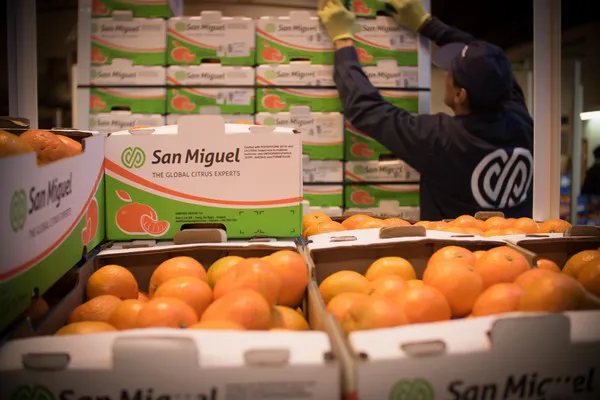
Expanding product offerings and origins
Alejandro Lucas, Executive Director of Fresh Fruit at San Miguel Global says: “Lemons are still our main product, but we have expanded quite a bit since the beginning. This past season we produced 55k tons of lemons, which is actually lower than usual because there were some climate issues in the Tucuman region last year. In the coming 2020 season we are expecting weather conditions to improve, and we forecast our usual levels of over 70k tons of lemons.”
The company also produced 47k tons of oranges, 30k tons of soft citrus, and 20k tons of grapes and avocados (combined). Their production has expanded to include four origins: 30% of the exported volume comes from Argentina, 40% South Africa, 10% Uruguay and 20% from Peru.
Alejandro continues: “I’ve been with the company for 20 years and when I joined, they worked only with the lemons from Argentina. But our customers started to demand other products, so we entered production in Uruguay to add oranges to our assortment. But this still wasn’t enough to meet demand.” So, in 2008, the company entered South Africa. “Once we put our feet into South Africa, our world expanded. Suddenly we had access to many new markets that we previously couldn’t reach, such as the Middle East and the Far East. We could now reach these markets because we were logistically better positioned in South Africa.”
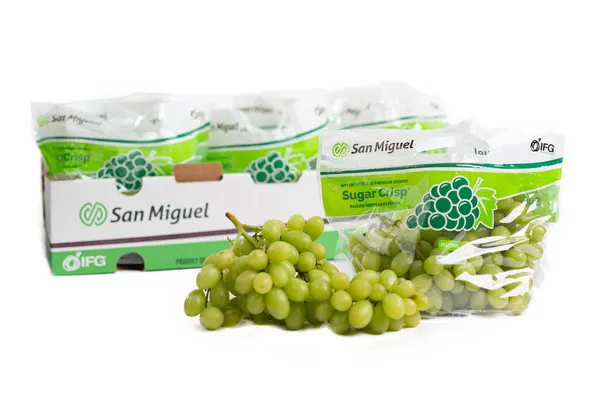
In 2017, the company expanded again, this time adding Peru to their repertoire of origins. Lucas shares: “Our main objective in Peru was to complete the citrus basket by bringing top quality soft citrus onto the market.”
He adds: “When we acquired the operation in Peru, the land was also actively producing avocados and grapes. This led us to discover a very interesting new world that we didn’t know before. The production and demand of avocados grows year by year. With the grapes, we work with the IFG varieties which are in high demand, especially in the US and China. Avocados and grapes are still a minority share of our basket of products, but they are nevertheless important.”
Differentiation from the competition
With a continuously expanding global production of many fresh produce products, San Miguel works hard at differentiating themselves within the market. “We work at differentiating ourselves in two aspects: through our products’ attributes, and through sustainability,” Lucas shares.
He explains: “What we do is highlight the attributes of the products we sell. For example, we are one of the largest producers of chem-free oranges and lemons, which are in high demand in France. We are also one of the largest producers of low-residue lemons, which are in high demand in Germany. So, these are attributes which we work to highlight. We also work to develop specialty varieties, such as seedless varieties, for our products. With our soft citrus, we invest in pollination nets.”
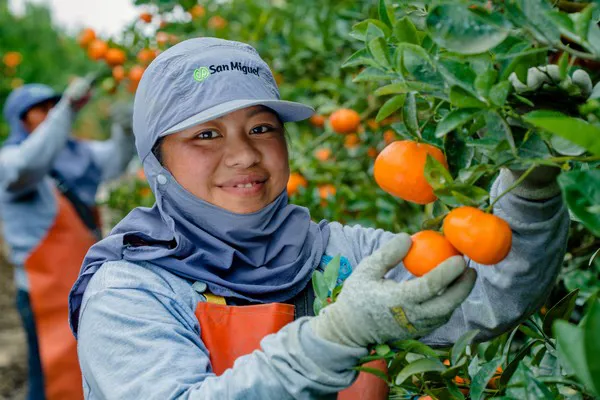
Mercedes Saraceni, Global Head of Institutional Communication at San Miguel Global says: “We use the netting technique mainly for our mandarins such as the Clementines and Afourer in Uruguay. This is a type of isolation technique for specific varieties of plants. It works to prevent insect cross-pollination by using a net that prevents the access of pollinators from other plants of different varieties nearby, and that is how we are able to produce seedless fruit which is an important attribute required by customers for premium markets. This technique allows us to grow premium specialty varieties without using chemicals or impacting the environment.”
Sustainability
Outside of working to highlight their products’ attributes, the company works on its sustainability to stand out. Saraceni shares: “We work on sustainability through multiple channels. One of these channels is conservation. We produce in harmony with the environment and work to preserve 60% of our land as native forests; we have also created the Caspinchango Private Natural Reserve. This helps us reduce our carbon footprint.”
The other channel of sustainability is that social sustainability. “In Argentina we have a program where we work with rural women, mainly wives or mothers of our workers and help them create their own businesses and set up their own undertakings,” Saraceni shares.
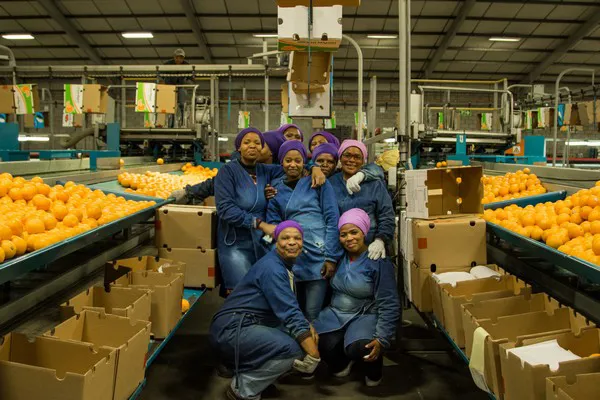
Lucas adds: “Another one of our very important projects is in South Africa. This is our BEE project, or our Black Economic Empowerment project. In 2019, San Miguel created a new company in South Africa called Thudana Citrus under a shared-ownership scheme with our employees, which aligns with the Black Economic Empowerment framework. This meant giving a 30% stake of this citrus company to 120 workers. We established a training and development program for these share-holders, and the initiative seeks to empower these workers and create opportunities for them and their families.”
“BEE Promotion Law is part of the National Development Plan for 2030 in South Africa, aiming to address inequality for black South African citizens as a result of the Apartheid. The main challenge of the plan is to reduce poverty and inequality by 2030 through the combination of three factors: growing employment, higher incomes through productivity growth, and good public services,” says Saraceni.
Consolidating growth
The company has experienced much expansion in the past few years, and with a large percentage of their current plantings still being young, this expansion will likely continue into the coming years. Lucas says: “Our focus now is trying to keep on growing, specifically in the United States and China. Europe is quite a mature destination for us, and we’re well set up there. But the US and Chinese markets are very demanding in the quality of their products so they are challenging markets that we would like to expand in.”

The main challenge so far of 2020 is that of the effects of the coronavirus. “We are currently in our grape season, and we have had some issues due to the virus. We had to divert some containers due to port congestion in China – which was because of the extended holiday due to the virus. But the market seems to be returning to normal now, and we’re working with supermarkets in China to help promote the consumption of table grapes,” says Lucas.
Lucas concludes: “Our strategic locations help us to broach and circumvent these challenges because our products come from multiple origins. This, in combination with our focus on distinguishable attributes and social and environmental sustainability, is what helps make San Miguel Global unique.”
For more information: 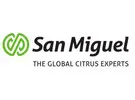
Mercedes Saraceni
San Miguel Global
Email: msaraceni@sanmiguelglobal.com
www.sanmiguelglobal.com
